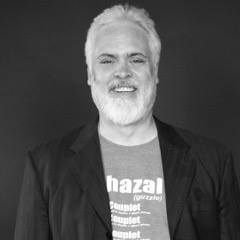
Kaitlyn Finchler
Staff writer
Prose writer-in-residence John Brantingham describes synesthesia as the blending of different senses.
“Language is really tied to our emotional lives because of (synesthesia),” he said, and writing that considers this can explore the meaning and imagery of words.
Brantingham will discuss these topics in his Brown Bag lecture at 12:15 p.m. today on the porch of the Literary Arts Center at Alumni Hall. He will focus on flash fiction, which is defined as any fictional story under 1,500 words. Brantingham, who has 10 Pushcart Prize nominations to his name, and has published more than 20 collections of fiction and poetry, is the co-creator of the San Gabriel Valley Literary Festival.
Brantingham cited a study conducted to figure out what words people would recognize in modern English, he said. As an example, Brantingham said “mama” and “papa” are recognizable in almost every language.
“The emotional link of those sounds are instinctual,” he said. “There’s a lot you can do with that. Flash fiction very often is about keying into that and having an emotional reaction.”
Brantingham said another component is trusting readers to fill in most of the story for the writers.
“I have a friend who, when he talks about poetry, says, ‘I can read a novel all day long,’ and it affects me but not in the same way,” he said. “If I read a poem, I have to take a nap and get a cookie … because you’re doing so much of the work.”
He said this is due to the emotional toll it takes on someone while reading, and it’s no different with flash fiction.
“My mission in life, for me and the people I teach and read with, is to open up the concept of radical wonder,” Brantingham said. “Radical wonder is making sure that you’re keeping finality out of your life.”
Viewing anything through an unoriginal lens is dangerous, he said. People start to look around and think, “Oh, it’s just this,” without holding any meaning.
“The world is exceptional,” Brantingham said. “You can start to see it as precious — that’s the center. I view the natural world in that way.”
He said he wants to embrace nature in its truest form. For example, he explained his love-hate relationship with mowing the lawn, which stems from his appreciation for nature.
“I’ve got sections where it’s overgrown and I leave them that way because I want the bugs and animals to be there,” he said. “We had a whole bunch of bunnies — an army of bunnies — living and trying to stay away from my dog, just trying to live.”
Brantingham said he works a lot with ekphrasis, the use of detailed description of a work of visual art as a literary device.
“I love the arts because it’s a constant conversation,” he said. “It’s a 10,000-year-old conversation we’re having back and forth about the nature of life and death. We keep getting more and more refined trying to do so.”




